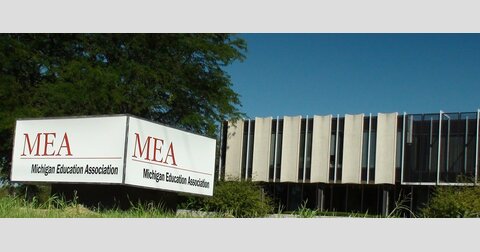Union Tries to Block Election that Would Decertify it
MEA files unfair labor practice to derail decertification vote at Grand Rapids Community College
The Michigan Education Association is trying to block a group of clerical workers at Grand Rapids Community College from holding an election to determine if the union is still a good fit for them.
The MEA filed an unfair labor practice and won’t back off until the workers agree to cancel the vote. An administrative law judge at the Michigan Employment Relations Commission will hear the matter Feb. 5 and Feb. 6. Timing is critical because the group’s four-year contract is about to expire.
“They are doing everything possible not to let us vote on whether to decertify. Why would they care about a tiny group of under 100 members?” asked Penni Weninger, who served on the unit’s board but resigned so she could remain neutral in helping members consider options, like forming an independent union.
The MEA is facing an exodus of members since Michigan’s right-to-work law went into effect in 2013. In 2014, 5,000 members opted out during the union’s so-called “August window,” the one month of the year the MEA allows members to quit. This rule was found to violate state law by an administrative law judge.
Additionally, one year ago, the MEA lost nearly 300 members when 88 percent of clerical, office and technical employees at Grand Valley State University voted to decertify from the MEA and form their own union.
The employees in the clerical union at Grand Rapids Community College watched that vote carefully, as they thought they were paying too much for too little from the MEA. According to Weninger, when the group first associated with the MEA around 1991, dues were about $200 a year. She says the dues, which are charged at a rate of 1.5 percent of the first $44,000 of salary, have ballooned to as high as $850. A portion of the dues goes to the NEA, and members must also pay a surcharge to support the MEA’s pension fund.
“A teacher on the east side of the state in a wealthier suburb making $75,000 to $80,000 for three-quarters of the year is paying the same as clerical workers here making no more than $44,000 for the full year,” said Weninger.
Like the GVSU employees, the clerical workers at the community college felt the union spends most of its time, effort and money on members at the K-12 level. Weninger points out that her unit of 100 was powerless in the face of the surcharge and other objectionable practices approved by the MEA’s Representative Assembly.
“We had one teeny, little vote, one vote from secretaries from the west side of the state,” she said. The unit’s “UniServ” field staffer was of little help and worked more to serve the interests of the union than the members, Weninger added.
Members also began to realize the MEA was becoming powerless against economic realities in Lansing. Public union workers are now paying more towards health and retirement benefits and in some cases, enduring pay cuts.
Last summer, a group of workers decided it was time to put the unit’s association with the MEA to the test. The group was in the fourth year of its collective bargaining agreement, and therefore free of Michigan’s Contract Bar Rule, which prohibits decertification petitions within three years of an agreement. (Most K-12 contracts are three years long, while those in higher education are four years long).
The clerical workers talked to attorneys, researched laws, and contacted the Michigan Employment Relations Commission about the correct process. They talked with GVSU’s new independent union and met outside work hours to discuss the pros and the cons of decertification.
They filed a petition with the state in August and turned in 33 signatures, three more than the 30 required.
One month later, the MEA filed an unfair labor charge, stating that the community college “engaged in unlawful assistance to the rival independent union, including negotiation, advisement and provision of resources,” in violation of Michigan’s Public Employment Relations Act.
The MEA’s attorney did not return an email for comment, nor did the bargaining unit’s former president, Deb Stout, who told MLive that she supports the MEA.
Leah Nixon, speaking for the college, declined to discuss the matter while it’s in litigation but did issue a statement: “A voluntary mediation in which all parties agreed to participate was held on Dec. 2, 2014. While there was good dialogue between the parties to clarify their positions, there was no resolution to the unfair labor practice charge. As a result, a hearing on the unfair labor practice charge has been scheduled to be held before an administrative law judge with the Michigan Employment Relations Commission in Lansing on Feb. 5 and 6, 2015. The administrative law judge will determine whether or not an unfair labor practice occurred.”
The unit’s contract expires in June and decertification must take place before negotiations on a new agreement begin. Weninger is hoping the judge will strongly consider the group’s intent.
“We did not go in behind closed doors, wheeling and dealing. We simply wanted some information. All we wanted to know was if it mattered to the college who represents us, because we could not get that information from anyone else,” Weninger said.
Michigan Capitol Confidential is the news source produced by the Mackinac Center for Public Policy. Michigan Capitol Confidential reports with a free-market news perspective.


 Paraprofessional in Traverse City gets MEA decertified and replaced
Paraprofessional in Traverse City gets MEA decertified and replaced
 Hydra-Lock employees vote to decertify their union
Hydra-Lock employees vote to decertify their union
 MEA head boasts of membership growth, but numbers tell a different story
MEA head boasts of membership growth, but numbers tell a different story